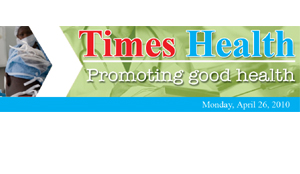 By STEPHEN KAPAMBWE –
By STEPHEN KAPAMBWE –
ON the first-ever Universal Health Coverage Day, a historic global
coalition will call for universal health coverage to be a cornerstone
of the sustainable development agenda and a priority for all nations.
The local coalition will be led by the Zambia Asthma Association (ZAA)
which has since received a US$13 million budgetary allocation towards
promoting December 12, 2014 as day unanimously endorsed by the
United Nations (UN) for universal health coverage.
The December 12, 2014 commemoration or just 12.12.14 is a World
Health Organisation (WHO) initiative dubbed Global Coordination
Mechanism on Prevention and Control of Non-Communicable Diseases
(NCDs). The initiative is aimed at celebrating progress toward universal
health for all and leaders should be held accountable. ZAA plans to mark 12.12.14 by hosting a conference to promote the universal health coverage campaign. Besides the conference, the budgetary allocation will go towards
implementing WHO country activities in the country plan for Zambia
which is being undertaken by ZAA in conjunction with the government
and a number of other stakeholders.
ZAA executive director Dean Nsalashi says his association has since
been selected by WHO to handle advocacy issues encompassing
non-communicable diseases (NCDs) like diabetes, cardiovascular,
respiratory diseases and cancer.
This is because such diseases where left out in the advocacy campaigns
in the millennium development goals (MDGs) agenda.
ZAA has been fighting to have the NCDs included in the advocacy
campaigns for universal health coverage largely because of increased
cases of people that suffer from the ailments coupled with lack of
information about how to manage the conditions.
He explained that NCDs like asthma have become commonly known as
silent killers because there is little attention given to the disease
as well as to those suffering from it especially when it comes to
information reaching the community as regards complications which are
caused mostly by environmental factors,” he said.
The decision by the WHO to include NCDs in advocacy campaigns follows
lobbying by ZAA through the global non-communicable disease network,
or non-communicable diseases alliance from 2011 through a process
called the United Nations Political Declaration on the Prevention and
Control of Non-Communicable Diseases.
The aim of the process was to ensure that as a way of attaining
universal health coverage, the Government should assume responsibility
in tackling the four NCDs mentioned above and carry out adequate
sensitisation.
The build up to the December 12th conference will involve a list of
activities among which is engagement with the media to heighten public
interest.
In its media engagement, ZAA would be trying to provide information
about universal health for all.
The organisation will also seek to interact with policy makers, like
the political, civic and community leadership to show how the country
is taking steps toward ensuring health for all.
The UN believes that civil society demand for change has been crucial
to driving progress concerning universal health for all.
During the planned conference in December, policy makers will be urged
to accelerate progress toward universal health coverage.
The conference would be the beginning of sensitisation and advocacy
campaign activities which are meant to spur action beyond 2014.
But prior to the conference this December, other activities to
heighten interest around the universal health coverage would involve
the hosting of discussions, panel or roundtable conferences in honor
of Universal Health Coverage Day.
Universal health coverage being, by definition, a broad issue –
stakeholders like the ZAA have been requested by the WHO to focus
country programmes on a specific theme or priority topic that is aimed
at resonating most with most discussants.
Besides talking about the four NCDs, the sensitisation is also taking
into account the Ebola outbreak which has so far affected countries in
West Africa as well as the Democratic Republic of Congo (DRC).
Up to November 9, more than5,000 people had been reported as having died
from the Ebola virus disease affecting Liberia, Guinea, Sierra Leone,
Nigeria, Mali and the United States of America.
He said even though medications for NCDs like asthma and diabetes in
the country are said to be free and sometimes given free of charge, it
was not all the time that clinics had them in supply.
He said some patients only received prescriptions from health
facilities even though they may not be able to afford to buy the
medication.
He said ZAA was not only looking at asthma but at universal health
coverage in order to see all clinics and health centres deliver what
is required of them to every patient.
The association would soon start circulating material about the NCDs
as regards universal coverage so that communities are brought to speed
on where to get help when they have problems.
Besides working with WHO, ZAA has also partnered with the ministry of Health.
All activities being planned by ZAA, including the conference in
December, have been outlined in the WHO programme budget for
2014/2015.
Besides implementing WHO country programme, ZAA would be required to
engage working groups which would also access financial support.
WHO has since written to its regional office in Lusaka as well as the
Government outlining activities that ZAA would be undertaking in line
with WHO activity guidelines that are country specific even in terms
of how the budget would be disbursed.
ZAA appealed to stakeholders to support the initiative by supporting
the hosting of the conference in December.
The success of the conference will have spill-over benefits for the
general public in terms of increased access to information
disseminated about diabetes, cardiovascular, respiratory diseases,
cancer and other conditions under the universal coverage.






